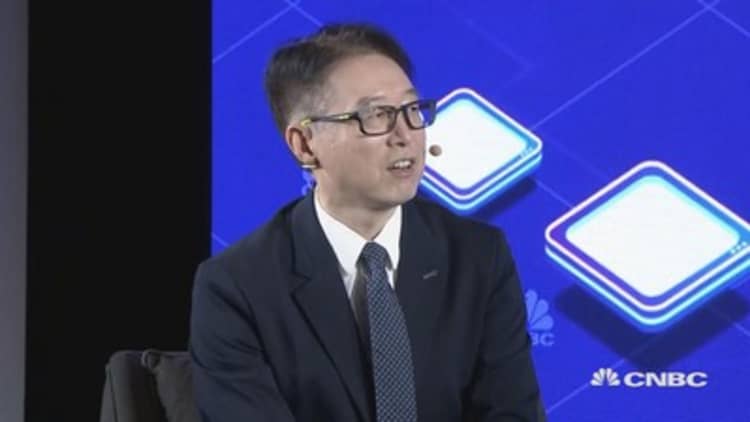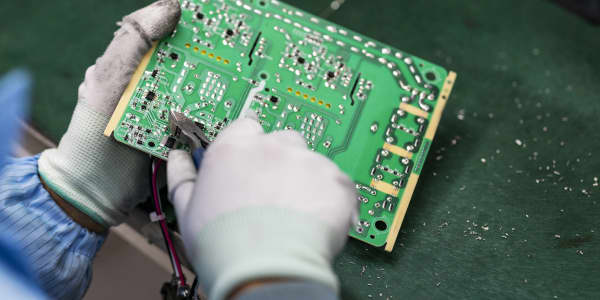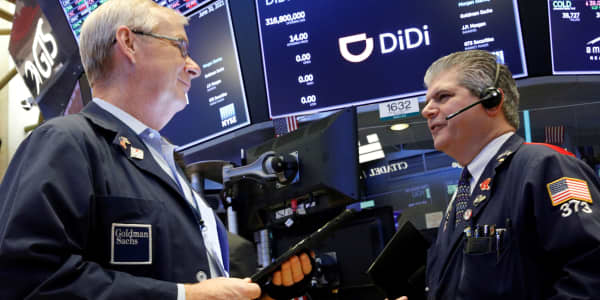
Scanning a barcode to make payments in China could soon be a thing of the past, as technology giants such as Tencent are now studying the use of facial and fingerprint recognition for such transactions.
Most people in China pay using their mobile phones to scan QR codes — a type of barcode system. They do so via the two most popular mobile payment platforms: Tencent's WeChat Pay and Alibaba's payments arm Alipay.
"In China, payment methods using QR codes have replaced cash and cards in just five years. It's possible that in the next few years, new and better products could emerge to replace QR codes," said Greg Geng, vice president of Tencent's WeChat Business Group, at CNBC's East Tech West conference in the Nansha district of Guangzhou, China.
Geng made those comments in Mandarin on Monday, which were translated by CNBC.
WeChat Pay in August introduced its "Frog Pro" system that allows customers to make payments by simply scanning their faces — without the use of their mobile phones. The technology is now being tested in several retail chains in China and came after Alipay rolled out its own facial recognition payment system, the "Dragonfly," last year.
Asked about data privacy and security, Geng said that working with Chinese regulators to introduce new payments technology means the company will have to comply with any data protection requirements. In addition, the fact that WeChat could process one billion transactions daily means the company has stringent measures in place to protect users' data — something it would keep up and strengthen, he said.
Alibaba Group's founder Jack Ma previously said the company thwarts 300 million hack attempts every day. He said last month that Alipay, which processes $50 billion of transactions each day, has yet to lose "one cent" to hackers.
WeChat Pay's expansion
Before facial and fingerprint recognition becomes more common in China, Tencent will continue to expand the use of WeChat Pay both domestically and internationally, said the vice president.
One of the company's latest move is to support foreign credit and debit cards on its platform, said Geng. That will allow tourists to make payments more easily in China, where foreign cards such as Visa or Mastercard are not commonly accepted.
WeChat Pay and Alipay dominate China's mobile payments landscape, which is considered by many experts as one of the most advanced in the world. But until recently, both platforms required users to have a Chinese bank account to make payments.
"Every year, we have around 500 million overseas visitors coming to China," said Geng. "As China increasingly turns cashless and cardless, it has become cumbersome for tourists to make payments. That's why we've worked with five major credit card companies — including Visa and Mastercard — to connect their cards with WeChat Pay."





